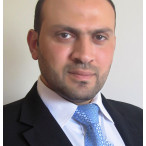Program Coordinator
We strive to provide premium educational content and unique guidance that helps you reach your fullest potential. In case you have any inquiries about the program, it is our pleasure to help you!
Join AAUP
Internationally Accredited & Globally Recognized
Our commitment to excellence in education is affirmed by worldwide accreditation!
Quick shortcuts
Auxiliary text
To make your browsing experience easier and more effective, we provide you with a set of shortcuts and quick links for direct access to the most important sections
How can we help you?
Connect with us
Reach out to us directly through the contact information below
- About Program
- About Admission








